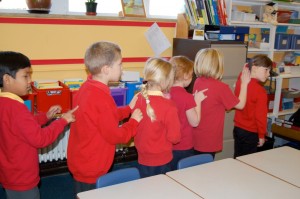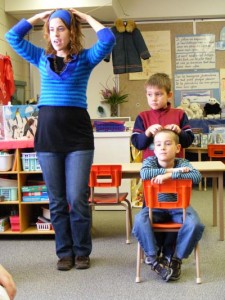“This is the best thing I have done in school”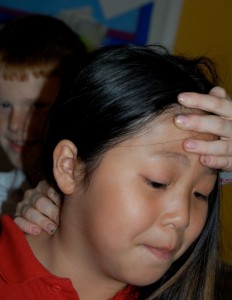
“I love massage in schools because I have more friends.”
“Massage makes me feel special.”
“If I don’t feel like massage, I can say no.”
“There is one bad thing about MISP : IT HAS TO END!”
Comments from Parents:
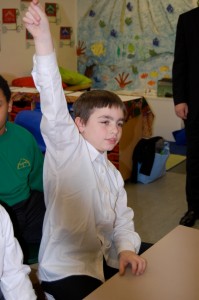
When my child comes home from school, I get a massage. Nothing is better than 4 year-old hands.” – Dad
“My son often had fights on the playground. While it occasionally still happens, he seems less aggressive and happier.” – Mom
“Initially, we said ‘no’ to our daughter participating in this activity. Eventually, we saw that she was upset about not getting to be involved. When we spoke with the teacher and Instructor, we understood that our daughter had the right to say ‘yes’ or ‘no’ and we immediately felt better about it.” – Parents
“My son is in a special-needs class that is integrated in the school. His class learned the massage first, and they, together with the Instructor and teachers, implemented it in the rest of the school. My son’s self-esteem grew, because this was something he could teach to the ‘normal’ children, and those children now have a different attitude about my son.” – Mom
“I pay my 7-year granddaughter 50 cents to give me a massage.” – Grandmother
”The first thing I noticed when children came into my classroom and already knew the massage is that they were more respectful to their classmates and to me.”
“I’ve noticed changes in how the children show consideration, and share and resolve conflicts.”
“After the morning massage, I can actually do my job, and teach.”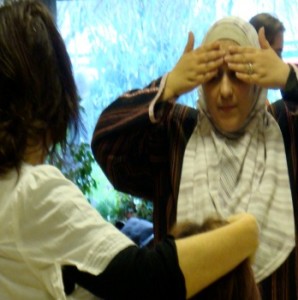
“The massage really did establish a sense of communication in my class, something I wanted but was not able to get otherwise.
“Children need a routine, and doing this for a few minutes every morning before we start our day works well in my class.”
“Touch is the most fundamental means of communication, yet 21 century paranoia can cut children off from physical contact with other human beings. This shows how they can ‘make contact’ and ‘keep in touch’ with their peers, and so recreate the basis of human social interaction and mental health.”
~Sue Palmer

